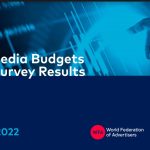By The Malketeer
In the rapidly evolving landscape of the modern workforce, artificial intelligence (AI) is poised to reshape the nature of jobs, impacting nearly 40% of all occupations and 60% within advanced economies.
However, contrary to the prevailing narrative of fear and job displacement, the World Federation of Advertisers (WFA) suggests that marketers are not only adapting to this transformative technology but are, in fact, excited about its potential impact on their roles as reported by the AdWeek.
Stephan Loerke, the CEO of WFA, underscores the positive sentiment among marketers, emphasising their enthusiasm for AI and its capacity to enhance rather than threaten their positions.
According to Loerke, the use of AI tools, particularly in the form of “Gen AI,” is becoming a valuable asset for marketers, allowing them to automate routine tasks and focus on more strategic and creative aspects of their work.
A recent report from the International Monetary Fund (IMF) indicates that AI integration will likely boost productivity in roughly half of all roles, while the other half may witness a shift in functions from human to machine. Despite concerns about potential job displacement, the focus should be on embracing this technological evolution.
Kristalina Georgieva, Managing Director of the IMF, advises countries, especially lower-income ones, to adopt AI and capitalise on the opportunities it presents.
Marla Kaplowitz, President and CEO of the American Association of Advertising Agencies (AAAA), echoes the sentiment of adaptability, emphasising that ignoring AI could render agencies irrelevant in the evolving landscape.
The consensus among economists, as revealed in a survey ahead of the World Economic Forum, is overwhelmingly positive, with 94% believing that AI will boost productivity in high-income economies in the coming years.
The WFA’s guide on adopting Gen AI provides insights into the current landscape of AI usage within marketing. Three-quarters of respondents from 55 member companies, collectively spending $118 billion in global marketing, reported using gen AI tools. Their enthusiasm, averaging seven out of ten, reflects a cautious optimism about AI’s role in driving growth.
While concerns exist, they are centered around brand-related issues such as intellectual property protection, copyright, brand safety, and diversity and inclusion, rather than anxieties about job security. This contrasts sharply with other sectors, such as legal professions, where expectations of disruption are higher.
The prevailing sentiment among marketers towards AI is one of excitement and optimism. As the world of work undergoes transformation, embracing AI and leveraging its capabilities can lead to enhanced productivity, creativity, and strategic thinking, positioning marketers at the forefront of this technological revolution.
MARKETING Magazine is not responsible for the content of external sites.









